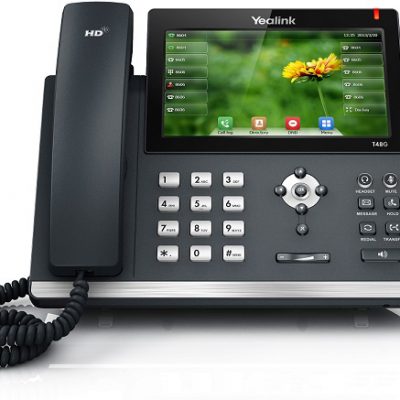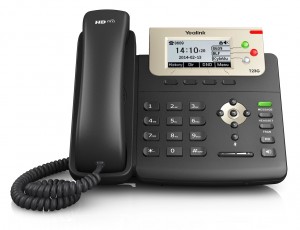Anybody can look good on paper, but can they walk their talk?
Doink! This resume just rocketed to the top of this list. There’s a checkmark next to every keyword. You almost have to wonder if this person is too good to be true. Only one way to find out, and that’s to arrange a phone call or video conference.
Prescreening job candidates can save you time and money. Resume-writing services will inject awesomeness into just about anybody, but it’s easy—and necessary—to get a glimpse of the real person before you invest in the next step. Here are 7 tips on how to see if a prospect is worth that investment.
1. Don’t wing it
Make notes all over that resume. Create a list of questions you’d like to explore, and then structure them in terms of need-to-know. This is important if you tend to get sidetracked.
You’re not the only one being scrutinized during a phone prescreen. The prospect will draw conclusions, too. Is one of them that you don’t respect their time? Know what you’re looking for. It may be a process of discovery, but you’re not spelunking.
2. Preselect your questions and stick to them
You already have a clear picture of the candidate who’ll be best for this position. The questions you select should have only one objective, and that’s to help you determine if this prospect fits the picture.
Avoid cliché questions like, “How do you see your career 10 years from now?” Do you even have an answer for that one? Choose actionable questions that are applicable and produce insight. Keep those questions about what a candidate can do for your company now based on examples of their actions in the past.
3. Manage expectations
Effective interviewers succeed in getting the information they need by setting the stage. They explain how they’ll conduct the interview and conclude with what they want to get out of it.
Video calls are the most effective ways to do this. The candidate can see you—and vice versa. You’re able to assess their understanding and receptivity to the process you outline.
This keeps your focused, as well. A video call call removes the temptation to sneak a look at an incoming email message, or anything else that can take your mind off the task at hand.
4. Keep your tone in check
The days are gone when a company can act as if they hold all the cards because they’re the ones with a job opportunity—if those days ever existed at all. A good candidate knows their value. You wouldn’t have scheduled a prescreen call unless you saw that, too.
Effective interviewers make their subjects feel welcome and appreciated. It puts them at ease and facilitates communication.
We all tend to accelerate our talking speed when we feel passionate about a subject. Watch for this as you go through the prescreen call. Keep your cadence at a casual speed. It helps to maintain the atmosphere you want, so you can search for the cues you need.
5. Start off by telling them about yourself
Have you ever participated in a hiring prescreen call—as the candidate—and wondered why the interviewer kicked it off with a “let me tell you about myself” moment? They weren’t making it all about them. In fact, they did it to make it all about you.
The underlying objective is to help the candidate by providing an example of presenting the information you want to get from them. Nobody’s yet invented a VoIP system with psychic add-on functionality. A candidate can’t read your mind, so you’ve got to manage the process by example.
6. Make it conversational
The focus is on your candidate. They should do most of the talking. Successful interviewers understand the importance of facilitation. They do it 3 ways:
- Direct the flow
- Keep the focus
- Maintain the tempo
If your candidate starts to ramble or moves off-topic, make a comfortable interjection and tell them you get what they’re trying to say—and then move on to the next topic. There is an art to conversation. Channel your inner Barbara Walters and keep things on track.
That means watching out for remaining time. You can help a prescreen candidate assemble and reschedule their thoughts or responses by managing the time in a conversational way.
- Let them know when you’ve reached the halfway point.
- Give them a heads-up when there are only a few minutes left.
- Tell them how many questions you’ve got left.
7. They’ve got questions, too
You’re missing a crucial opportunity for insight if you don’t give a candidate the ability to ask questions; as many questions as you do—or even more. Not to mention that it’s impolite. The key here is watching for the questions you want to hear the candidate ask.
Questions they bring up provide an understanding of their concerns and priorities:
- Do those match the picture you’ve outline for this position?
- Are they mainly about procedures and timing?
- Or, are they about your company’s culture?
Questions give you insight on what motivates them. Are there right or wrong questions? That decision is up to you. There should definitely be questions, though. You want to know they’re curious and interested in your company and the job.
Clear communications
Make your own conclusion if a prescreening candidate chooses to conduct the call while they’re at a coffee shop or driving through a tunnel. But, be fair and make allowances for their inability to arrange for a private environment based on where they are on a career path.
It’s a different story for you as the interviewer. You’ve set this up. And ideally, it’s a video call so you can benefit from all the visual cues of the interview.
If your VoIP platform is a CallSprout solution, you can also take advantage of the integrated CRM and HR capability, and make a hiring decision right on the spot by sending off a job offer with the click of your mouse. Contact us to find out how we can help move your hiring and screening efforts to the next level.






